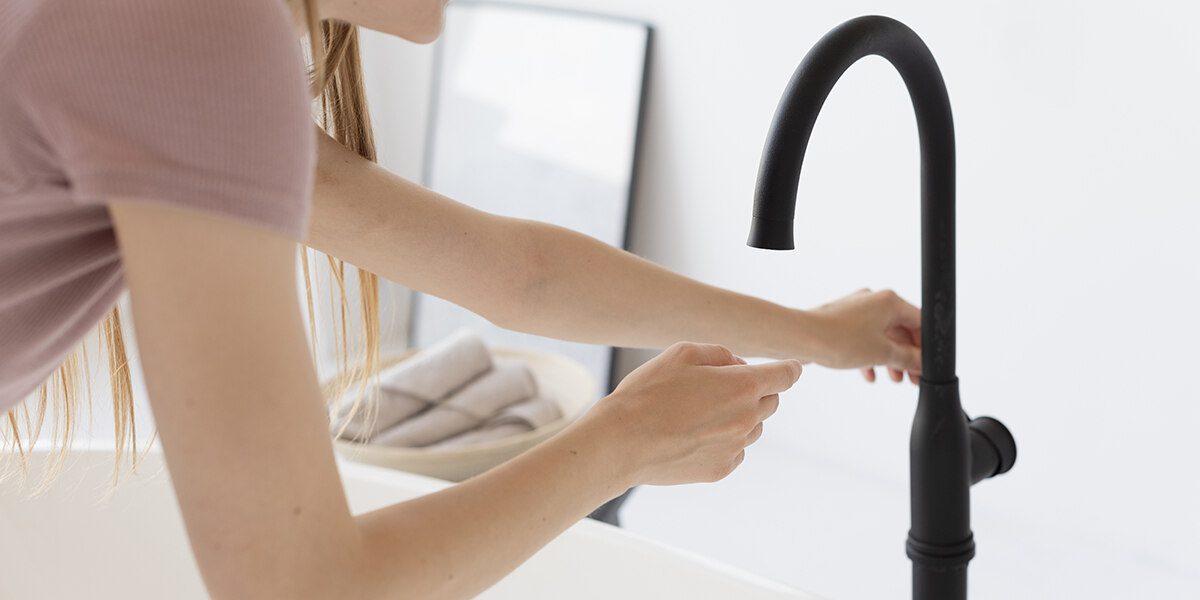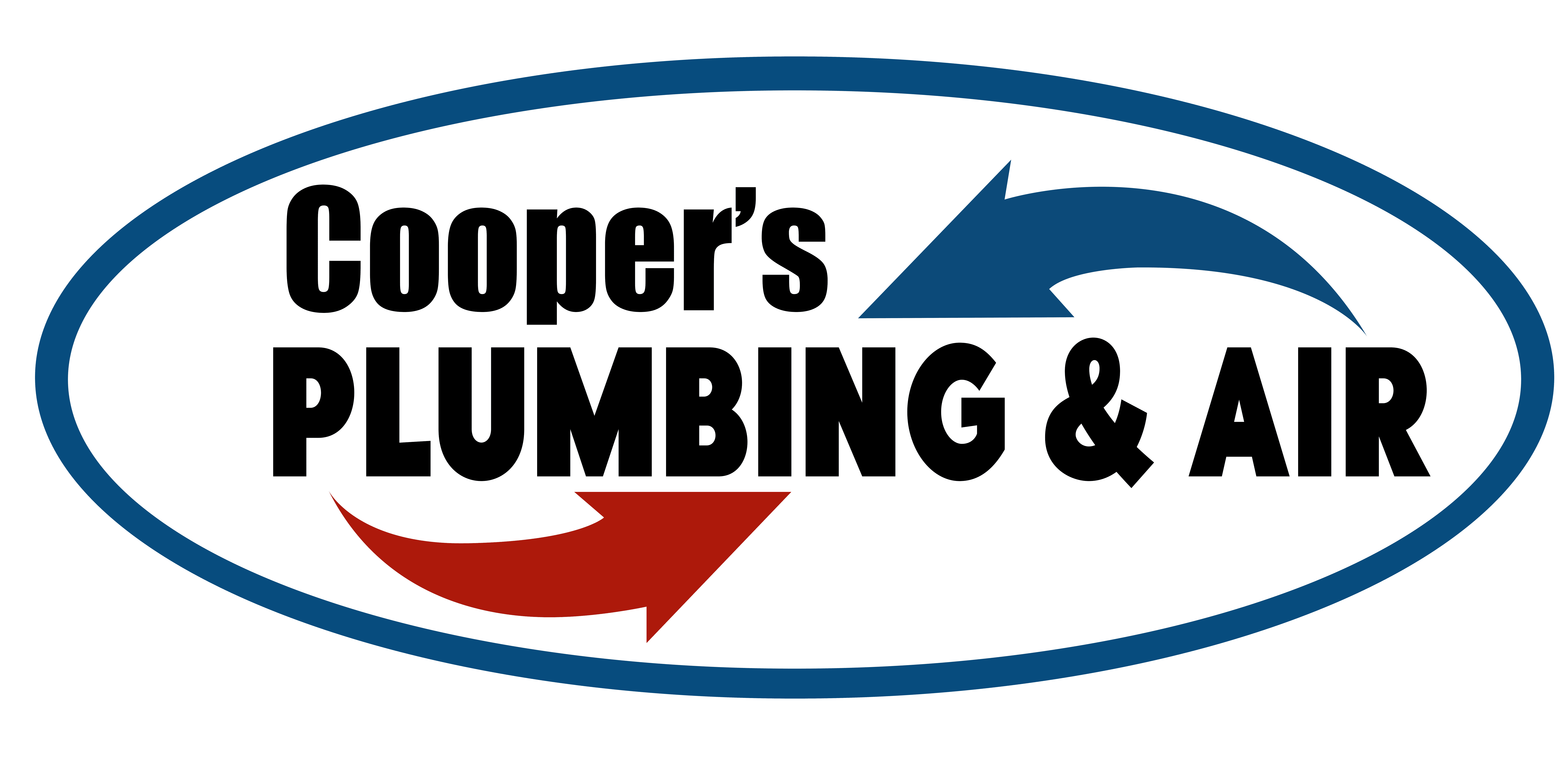
Are you struggling with a lack of water and don’t know what to do? When you have no water in the house, Cooper’s Plumbing & Air can help. As trusted and skilled plumbers in Bainbridge, GA, our team can accurately diagnose and effectively repair all your plumbing problems.
What Causes a Lack of Water?
When your water stops running, you likely have one of the following plumbing issues.
Water Main Problems
Your water main runs from your city water supply to your house and is the sole source of water in your home. If the large pipe bursts, leaks, or clogs, it can hinder the water supply to your home. If you notice any of the following signs, your water main likely contains the source of your problems:
- Loss of water pressure in your home
- Pools of water in your yard
- Complete loss of water in your home (rather than just certain faucets)
Closed Valves
Valves control the water entering and flowing through your home, and many homes have multiple valves. For example, while you have a valve on your main water line, you likely also have some at each sink, shower, and washer. This means you can determine where you shut off the water when you need to make repairs.
While you can purchase automatic shutoff valves, most homes don’t have them. However, sometimes a member of your household may shut it off without telling you and forget to open it back up. If you’re having trouble with water access, confirm you’ve opened all your valves.
Malfunctioning Water Heater
Broken water heaters are a significant source of water problems. The most often occurs when sediment builds up in the pressure tank, blocking the water from flowing throughout your home. You can prevent this problem by scheduling regular maintenance for your water heater and setting it to a moderate temperature of 130 degrees.
Leaking or Frozen Pipes
If a pipe leaks or bursts, it can prevent the water from reaching all the areas of your home that need it. With colder winters becoming more common, even Texas residents can experience frozen pipes.
One of the best things you can do to prevent leaks is to stay vigilant about what you send down the drain. Clogs are a major source of burst pipes, so only flush waste and toilet paper down the toilet.
What to Do When You Don’t Have Water
Even if you’re invested in saving water at home, when you have no water in the house, you can’t have the level of convenience and safety that you need. Whether your whole home lacks water or just a single shower or faucet, use the following tips to navigate the situation.
Check Multiple Faucets
When you turn on a faucet or shower and don’t see any water, your first step is determining if the rest of the house has the same problem. Check all your faucets, your shower, and your washer. This can help you determine whether you have a problem inside the home or with the main water line.
Look for Signs of Leaks
If you don’t have any water in your home, you likely have a leak somewhere in your plumbing system. If you look for signs of leaks, you can likely pinpoint the problem and direct your plumber where to look. The most common signs of leaks include:
- Water damage: Visible damage offers the most tangible proof you have a leak. This includes ratting wood, discolored walls or ceilings, and cracking or peeling walls.
- Mold or mildew: Mold and mildew can begin growing just 24 hours after a leak starts. If you notice mold or smell it in your home, you likely have a water leak.
- Pooling water: If you notice water pooling beneath an appliance, in your yard, or on your floors, you probably have a nearby leak.
- Low water pressure: Leaks often lead to low water pressure because not all the water reaches the destination. If you can’t get water to a faucet and your other locations have low water pressure, you can blame a leak.
- Increasing energy bills: One sure sign you have a leak is water bills that increase even when you use the same amount of water each month. You might also hear water running through your walls or notice your water meter ticking up even when you’re not using water.
Call Your Neighbors
If you call your neighbors and ask if they have water, you can determine whether you have a problem within your home or where the city provides water. If the city’s water supply line leaks or they shut it off for repairs, multiple homes will lack water. In this case, fixing the problem isn’t your responsibility, but you’ll have to stay patient and let the city do its job.
Contact the Utility Company
If you’re uncomfortable reaching out to your neighbors, you can call your utility company. Even if you’ve already talked to your neighbors, the utility company can tell you exactly what’s wrong and give you an estimate for when your water will return.
Depending on your utility company, you might access the information on their social media account or website. However, if the company isn’t the source of your problems, you won’t find the information you’re looking for.
Seek Professional Help
You should never deal with plumbing issues without professional help. DIY plumbing risks and costs are significant, as most solutions require special knowledge, training, and tools. When you hire a qualified plumber, you save both time and money in the long term.
Cooper’s Plumbing & Air Provides Excellent Plumbing Solutions
When you have no water in the house, you won’t find a better professional plumber than Cooper’s Plumbing & Air. Whether you’re suffering from a clogged shower or a leaking water heater, we work hard to leave you satisfied with our repairs. We’ve serviced South Eastern Georgia since 1997, so you can rely on our experience.
You’ll always speak with a real person when you call. To schedule an appointment, call 866-464-7132.
